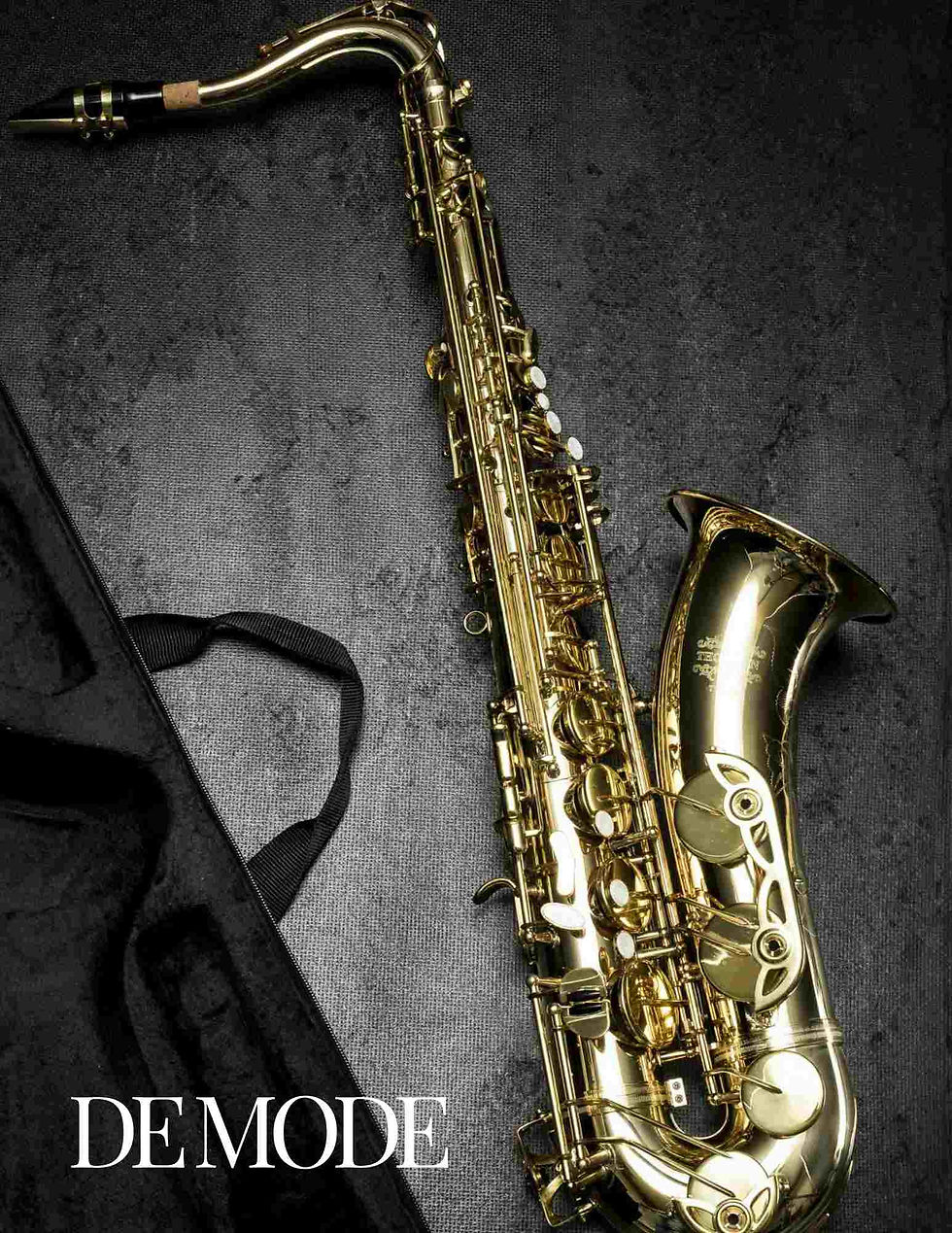"THE SOUND OF NEW ORLEANS - CELEBRATING THE BIRTHPLACE OF JAZZ": DE MODE GLOBAL
- DE MODE

- Apr 29, 2024
- 3 min read
ORIGINALLY PUBLISHED IN DE MODE | MUSIC
Article Published on: 29TH APR 2024 | www.demodemagazine.com
The sound of New Orleans is a vibrant tapestry of musical traditions, rhythms, and influences that reflect the city's rich cultural heritage and storied history. As the birthplace of jazz, New Orleans occupies a unique place in the annals of music history, serving as a crucible of creativity and innovation that gave rise to one of the most influential genres of the 20th century. From the sultry melodies of the blues to the infectious rhythms of Dixieland, the sound of New Orleans embodies the spirit of improvisation, spontaneity, and celebration that defines the city's musical identity.

At the heart of New Orleans' musical heritage is jazz, a genre that emerged from the vibrant cultural melting pot of the city's streets, clubs, and neighborhoods in the late 19th and early 20th centuries. Born out of the fusion of African rhythms, European harmonies, and Caribbean influences, jazz is characterized by its improvisational spirit, syncopated rhythms, and expressive melodies. From the smoky jazz clubs of the French Quarter to the lively second-line parades that wind their way through the city's streets, jazz is woven into the fabric of everyday life in New Orleans, serving as a soundtrack for both celebration and contemplation.
One of the defining features of New Orleans jazz is its emphasis on collective improvisation and ensemble playing, where musicians come together to create spontaneous and collaborative musical dialogues. In a traditional jazz band, each instrument – from the clarinet and trumpet to the trombone and piano – has its own distinct voice and role to play, contributing to the overall texture and dynamic of the music. This sense of communal creativity and interaction is at the heart of the New Orleans jazz experience, fostering a sense of camaraderie and connection among musicians and audiences alike.
New Orleans is also renowned for its distinctive rhythmic traditions, including the infectious syncopated grooves of Dixieland and the propulsive beats of second-line brass bands. Rooted in African rhythms and marching band traditions, these rhythms are characterized by their driving pulse, call-and-response patterns, and infectious energy that compel listeners to dance and move. Whether it's the syncopated strut of a brass band on Bourbon Street or the hypnotic rhythms of a Mardi Gras Indian tribe, the sound of New Orleans is infused with a sense of joy, vitality, and spontaneity that reflects the city's exuberant spirit.

In addition to jazz, New Orleans is also home to a rich tapestry of musical styles and traditions, including blues, gospel, R&B, and funk. These genres, each with its own unique sound and history, have left an indelible mark on the cultural landscape of the city, influencing generations of musicians and shaping the evolution of popular music around the world. From the soulful crooning of Louis Armstrong to the gritty blues guitar of Professor Longhair, the music of New Orleans reflects the diversity and resilience of its people, serving as a testament to the city's enduring spirit in the face of adversity.
Moreover, New Orleans' musical heritage is intrinsically linked to its cultural identity and sense of place, serving as a source of pride and inspiration for residents and visitors alike. From the iconic Preservation Hall Jazz Band to the legendary festivals such as Jazz Fest and French Quarter Fest, music is a central part of the city's cultural heritage, drawing people from around the world to experience its unique sounds and rhythms firsthand. Whether it's the mournful strains of a funeral procession or the jubilant revelry of a brass band at sunset, the sound of New Orleans is a celebration of life, community, and the enduring power of music to unite and uplift us all.

In conclusion, the sound of New Orleans is a vibrant tapestry of musical traditions, rhythms, and influences that reflect the city's rich cultural heritage and storied history. From the improvisational spirit of jazz to the infectious rhythms of second-line brass bands, music is woven into the fabric of everyday life in New Orleans, serving as a soundtrack for both celebration and contemplation. As the birthplace of jazz and a hub of musical creativity and innovation, New Orleans continues to inspire and captivate audiences around the world with its unique sounds and rhythms, celebrating the enduring legacy of a city that lives and breathes music.



Comments